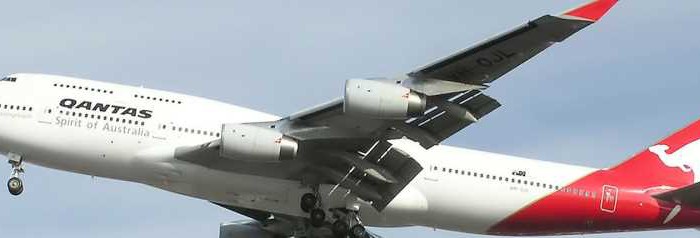On 1 July 2023, the Australian Government introduced a series of changes to the Australian visa system. The changes will affect Australian visas in the following ways:
Change 1- Increase in Temporary Work Visas Salary Threshold
The Temporary Skilled Migration Income Threshold for the Temporary Skill Shortage (TSS)(subclass 482) and Skilled Employer Sponsored Regional (Provisional) (subclass 494) visas has increased from AU$53,900 to AU$70,000 for nominations lodged from 1 July 2023.
Change 2- Work Restrictions for Student Visa Holders
From 1 July 2023, work restrictions for Student visa holders will be re-introduced with a cap of 48 hours per fortnight.
However, an exception to the 48-hour work limitation will apply to Student visa holders already working in the aged care sector on 8 May 2023. These Student visa holders will have unrestricted work hours.
Change 3- Temporary Graduate (subclass 485) Visas Changes
International students in Australia who have completed their degree in Australia in the field of health, teaching, engineering or agriculture may access extended subclass 485 visas from 1 July 2023. Acceptable qualifications must be on the prescribed list.
Visa periods will be increased to:
- 4 years for select Bachelor Degrees
- 5 years for select Masters degrees
- 6 years for all Doctoral degrees
First time applicants will be granted a visa with an additional period of two years added to the standard visa period.
Change 4- Work and Holiday Makers
As of 1 July 2023, Papua New Guinea became the newest participant in the Working Holiday Maker (WHM) Program, enabling up to 100 citizens of PNG to journey to Australia using the Work and Holiday (subclass 462) visa. Individuals who have completed a minimum of two years of post-secondary study in Papua New Guinea can now apply for the Work and Holiday visa.
For citizens from the United Kingdom, the age limit for the Working Holiday (subclass 417) visa has been extended from 30 to 35 years old.
In the context of the WHM Program, as of 1 July 2023, Condition 8547 has also been reintroduced for participants of the program. This condition applies to individuals holding either subclass 417 or subclass 462 visas and restricts visa holders from working with a single employer for more than six months. Relevantly, this change does not apply retrospectively, and any work carried out by a WHM prior to July will not be counted towards their six-month limit with the same employer.
Change 5- India-Australia Agreement
The Economic Co-operation and Trade Agreement between India and Australia commenced on 1 July 2023 with the following benefits:
- Indian citizens are now eligible to apply for Work and Holiday visas.
- Increased Post Study Work visa periods have been introduced for Indian citizens. Indian students graduating in Australia will be eligible for post study work visas as follows:
- upon completion of diploma or trade qualifications- stays of up to 18 months
- upon completion of bachelor degree (including honours)- stays of up to 2 years
- upon completion of masters by research and masters by coursework- stays of up to 3 years
- upon completion of doctoral degrees- stays of up to 4 years.
- Additional year of stay for high-performing STEM bachelor degree graduates (extended from 2 years to 3 years)
Change 6- Increased Immigration Target
On 1 July 2023 the Australian Government increased its intake of permanent migrants to 195,000 for this financial year, up by 35,000, in a bid to help businesses and industries battling widespread staff shortages and reduce reliance on short-term workers.
Change 7- Australian Citizenship for New Zealand Nationals
From 1 July 2023, New Zealand citizens who have been living in Australia for more than four years and arrived in Australia after 26 February 2011 will be eligible to apply directly for Australian citizenship without having to apply for a permanent visa. These changes apply only to New Zealand citizens holding a Special Category (subclass 444) visa (SCV). Protected SCV holders will continue to be eligible to apply directly for Australian citizenship.
From 1 July 2023:
- All New Zealand citizens holding an SCV will be considered permanent residents for citizenship purposes
- New Zealand citizens granted an SCV before 1 July 2022 will have their period of permanent residence for citizenship purposes backdated to 1 July 2022
- New Zealand citizens granted an SCV for the first time on or after 1 July 2022 will be considered a permanent resident for citizenship purposes from the date of their SCV grant.
The above provisions will apply to New Zealand citizens in Australia. It will also apply to New Zealand citizens who are overseas but held an SCV immediately before last leaving Australia.
These provisions will apply to citizenship applications submitted after 1 July 2023.
Change 8- Increase in Governmental Visa Application Fees
From 1 July 2023, Australian Department of Home Affairs (DHA) governmental fees increased with visa application charges increasing from between 6 and 40 per cent across various visa categories. Some of the new governmental visa application charges include:
| Visa Type | Subclass | Before | From 1st July 2023 |
| Partner visa (Onshore / Offshore) | 820/801 & 309/100 | $8,085 | $8,850 |
| Skilled visas | 189 / 190 / 491 | $4,240 | $4,640 |
| Graduate | 485 | $1,730 | $1,895 |
| Student | 500 | $650 | $710 |
| Visitor (Onshore) | 600 | $380 | $475 |
| Visitor (Offshore) | 600 | $150 | $190 |
| Working Holiday Maker | 417 / 462 | $510 | $635 |
| Temporary Skill Shortage (Short Term) | 482 | $1,330 | $1,455 |
| Temporary Skill Shortage (Long Term) | 482 | $2,770 | $3,035 |
| Employer Nomination Scheme (ENS) | 186 | $4,240 | $4,640 |
| Significant Investor stream | 188 | $9,195 | $13,860 |
| Significant Entrepreneur stream | 188 | $4,240 | $6,395 |
| All other applicants | 188 | $6,270 | $9,450 |
For advice regarding Australian visas, please do not hesitate to contact us at info@hartmanimmigration.com.au for Australian immigration assistance.
Disclaimer:
The information on this website is intended only to provide a summary and general overview on relevant matters. It is not intended to be comprehensive nor does it constitute legal advice. You are advised to seek legal or other professional advice before acting or relying on any of the content contained in this website.







